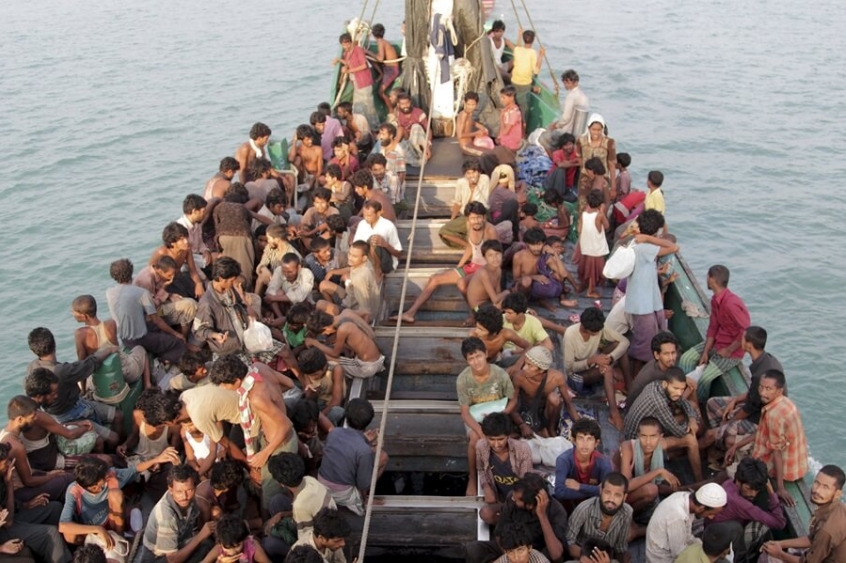
Thousands of Bangladeshi and ethnic Rohingya migrants are literally caught between the devil and the deep blue sea as trafficking syndicates, who refuse to abandon their business, hold their captives in "camp boats" in the sea.
Accounts from survivors show that migrants have been held hostage in cargo ships in the Andaman Sea, where only money from relatives can set them free, The Guardian reported on Thursday.
"The traffickers will not abandon their business, so they have now started putting 'camps' in the sea," said Chris Lewa, founder of the Arakan Project. "Since the end of February, we now have thousands and thousands of people stuck at sea, and I think we already have more death than even at the camps in Thailand."
Migrants were not only held hostage, they were also beaten and raped, as officials in southern Thailand and Malaysia discovered. However, unlike those who were buried in mass graves in the countries mentioned, those who die while at sea were thrown overboard.
A survivor who requested anonymity described the excruciating ordeal, saying the ship she was in had "six storeys in total: three above deck, three below. The men and women were separated."
The women on the ship became easy prey for crew members. She said a girl "around 12 years old" who was "very beautiful" was taken to a room by some men and was "not released from the ship."
"If the women did not go, they were beaten," she said.
Staying out on the sea meant limited food. "Food rations were not enough ... when I asked for more, they beat me," said the survivor, who was with her three children during her captivity.
A 19-year-old Rohingya man from the Rakhine state in Burma, who was in one of the boats last year, said his vessel joined a bigger boat not far from Thailand after nine days at sea. The other boat had over 1,000 people onboard, roughly a third of whom were women.
"I spent 14 days on this ship. Three days after we were transferred, three smugglers arrived from Malaysia and boarded our ship. They carried mobile phones. They first asked who had phone numbers and, one by one, we started calling our relatives. Those [who did not provide] phone numbers were beaten," he recounted.
"The smugglers ordered passengers to beat them with engine chains wrapped in plastic and plastic pipes with something heavy inside. Even those with phone numbers were beaten."
Survivors were abused until their respective families sent money, after which they were taken to land through small fishing boats.
"Before I left, I witnessed three men who had become paralysed and one dead body was thrown overboard," he said.
Another survivor from northern Thailand recalled: "I stayed on the boats for three months from February this year until April. I remember people were beaten every day, sometimes two or three times a day. Those who could not pay were beaten."
Refugees were on the sea for months, and one tanker ship has even been used as a camp.
"It has been out for two months and is moving all the time. The ship has got 2,000 people on it. The traffickers are relocating their camps because so much money is involved," said Abdul Kalam, an adviser to the Thai police.
A survivor, age 15, remembered witnessing 34 people die from sickness during the 40 days they were held hostage in a big camp vessel.
"Crew members threw the dead bodies overboard," he said.
Those who fell dead in other vessels were treated similarly.
"About the 20th day of waiting in the Andaman Sea, another two cargo boats arrived. They were smaller than our boat and they anchored near our boat ... I saw people who had died in those two boats: eight bodies were thrown overboard from one boat and the following day another 13 bodies were thrown from the other boat. I do not know how they had died."













